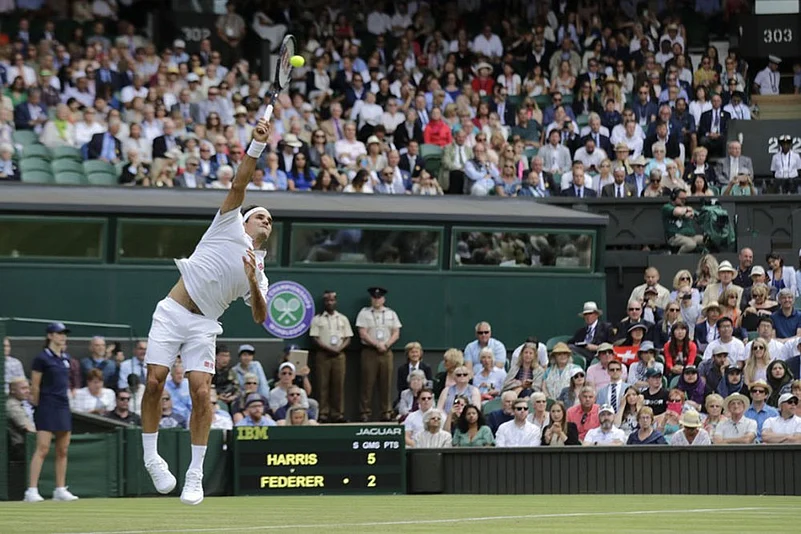Wimbledon chiefs are to scrap the 'Middle Sunday' day off at the championships – and prize money for this year's tournament looks certain to be slashed. (More Tennis News)
The announcements came on the day the All England Club revealed it received £180million in insurance pay-outs after last year's tournament was cancelled due to the COVID-19 pandemic, of which around £36million went to the Lawn Tennis Association.
Chairman Ian Hewitt said that from 2022 the Sunday at the end of the first week would become "a permanent part of our tournament schedule and we will become a 14-day tournament", with the move signalling the imminent end of 'Manic Monday', when every fourth-round match was squeezed into a packed schedule.
That is regarded by many as the most exhilarating day of the tennis year, although others consider it too busy, given the number of standout matches taking place.
From next year, those matches are now set to be split across the previously fallow Sunday and the second Monday or the championships.
Hewitt said: "Yes, that second Monday of course was popular with many, but it did create significant challenges. I'm not sure it really did full justice to that day's tennis.
"To be able to spread over two days does more justice to the play at that event."
He said the tournament should "be more accessible" on that weekend, with the Sunday having previously been given over to allowing groundstaff to have time to tend the courts, which can be in need of repair after the first six days of play.
"We are now confident we will be able to look after the courts, most particularly Centre Court, without a full day of rest," Hewitt said.
He said this year's tournament "will be different from Wimbledon as we know it", and organisers are currently planning for a 25 per cent capacity attendance, albeit still hoping to get the go-ahead to admit more spectators.
When play has happened on the middle Sunday in the past, typically due to a backlog caused by several days of rain meaning the tournament has fallen behind schedule, tickets have been made available to the general public and that has led to a vibrant, often more raucous, atmosphere.
Hewitt though signalled that would not be the ticket policy going forward, saying: "It's unlikely it's going to be like Middle Sundays in the past."
The 2021 prize money for players, who must remain in a bubble during the tournament and will not be allowed to rent private houses in London, is set to hinge on how many spectators Wimbledon is allowed to accommodate. A significantly reduced attendance would hit the event hard in the pocket, meaning prize money at the level of previous years would be impractical.
It paid out £38million to players in 2019, with the men's and women's singles champions, Novak Djokovic and Simona Halep, each picking up £2.35million
The players may only learn the 2021 prize fund a matter of days before the tournament begins, with no decision expected until June. Wimbledon begins on June 28.
"It is premature to make a judgement," Hewitt said, when asked about the prize money.
Chief executive Sally Bolton said Wimbledon was "absolutely determined to be back in style" and "to bring back sport and sporting events in the way that we know them", but pandemic considerations are limiting what it can achieve.
It has not yet been decided whether spectators will need to wear face coverings while watching matches, even though restrictions on normal life in the UK are due to be lifted on June 21.
Bolton said players may feel some "frustration" given their freedom of movement will be restrained, pointing to the "single environment" for competitors being a decision reached on the basis of dialogue with the UK government and Public Health England.
















